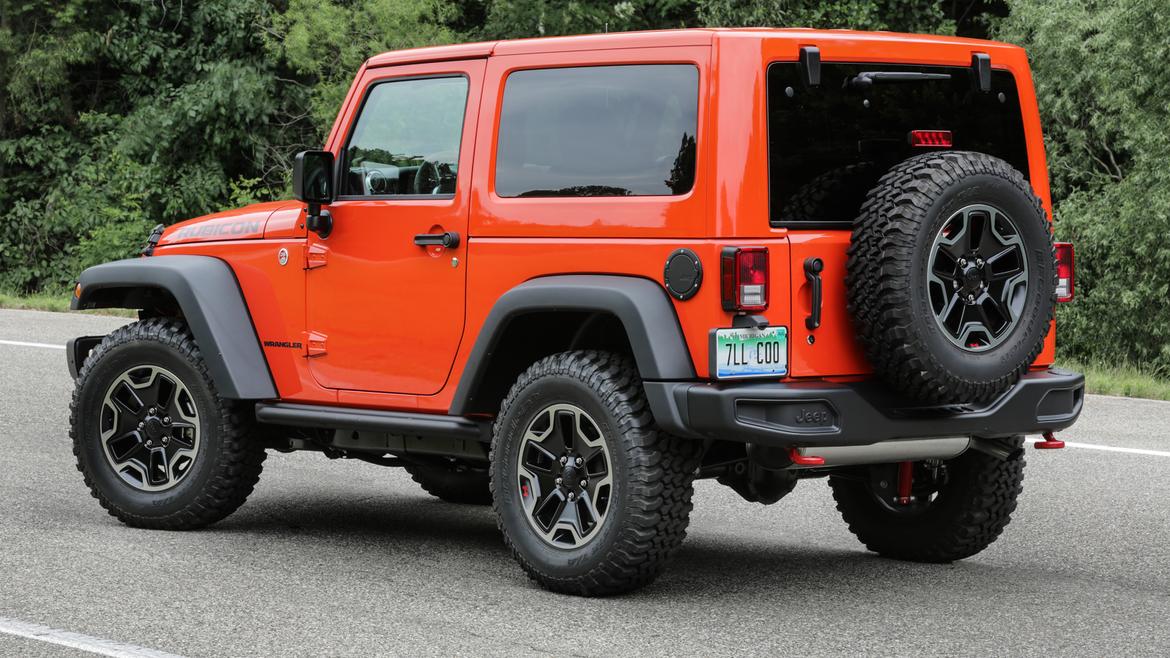
the epa and department of justice this month announced a settlement with fiat chrysler automobiles that amounts to some $800 million in civil fines, recall repairs and environmental remediation, and, pending court approval, a settlement with vehicle owners. the agreement addresses illegal pollution levels in roughly 100,000 diesel suvs and pickup trucks from the 2014-16 model years.
here's what owners of affected vehicles need to know:
which cars are affected?
two models: the ram 1500 pickup truck and jeep grand cherokee suv, both from the 2014-16 model years and equipped with the optional 3.0-liter ecodiesel v-6 used engine . jeep and ram are among fca's six u.s. brands.
what happened?
in january 2017, the epa alleged that fca violated the clean air act with emissions software that allowed illegally high levels of nitrogen oxide, a smog-forming pollutant, from the ecodiesel v-6 in grand cherokees and ram 1500s. several months later, the justice department piled on with a civil suit.
twenty months later, this month's outcome means fca will pay hundreds of millions in civil fines, commit to corporate oversight and environmental remediation, and recall all affected cars for a free repair. but it doesn't necessarily mean the automaker is guilty: unlike a criminal charge, civil litigation generally avoids any admission of wrongdoing. indeed, fca acknowledged uncertainty among customers but maintained no deliberate attempt to thwart emissions tests.
what's the fix?
the fix involves a software reflash of the vehicle's used engine and transmission computers but no hardware modifications. the update will be free and accompany an extended warranty to related parts. epa used engine ers have tested the software remedy and it is approved by both the epa and california air resources board.
will the fix change my car's performance, mileage or reliability?
fca claims it won't. the update "does not affect average fuel economy, drivability, durability or refinement of the vehicles," the automaker stated. under the terms of the agreement, fca must also test its remedied vehicles for five years to ensure they continue to meet emissions standards and pay additional fines if it doesn't.
according to court filings, the fix isn't expected to alter reliability or performance, but consumers may notice slightly higher consumption of diesel exhaust fluid in "certain conditions," as well as a possible decrease in fuel economy "under sustained low-speed driving (e.g., under 21 mph) with frequent stops ... [or] under sustained high-speed driving conditions."
how will fca reverse the alleged pollution already caused?
as part of the agreement, the automaker is required to help develop cleaner aftermarket catalytic converters sold outside three states that already require ultra-clean converters. such efforts should reduce future pollution when owners replace old catalytic converters with the low-pollution ones. fca is required to improve the efficiency of 200,000 such converters, the epa says.
what should i do right now?
if you have an affected model, call your dealer to ensure it has your correct contact information, then sit tight. affected consumers "will be advised when they may schedule service appointments," fca said. the automaker is "establishing the required logistics to identify vehicle owners and provide service and remuneration."
when do i get paid?
assuming court approval of the proposed settlement for private owners, in as little as a few months but as long as two years, depending how quickly you act. fca has already set aside money for the payout, but the settlement awaits a ruling from a u.s. district court in california, where a hearing on plaintiffs' motion for preliminary approval is scheduled for jan. 23.
presuming the court approves the proposed settlement, affected owners will receive notices and a claims process will begin. that's according to elizabeth cabraser, the court-appointed lead counsel and chair of the plaintiffs' steering committee. a final approval hearing will take place in late spring. after final approval, owners and lessees will have 18 months to submit a claim, and two years to get the software fix and receive compensation, cabraser said. former owners and lessees, meanwhile, will have 90 days to submit claims.
total proposed reimbursements range from $990 to $3,075, according to the epa. some of this may come from a related settlement proposal with auto-parts supplier bosch. that settlement is for $27.5 million, according to the plaintiffs' committee. the committee has set up a separate website for further details: ecodieselsettlement.com.
what if i no longer own the car?
it depends when you sold it. the epa served fca a violation notice on jan. 12, 2017. those who sold their car after this date "can also file claims to receive a portion of the total cash compensation assigned to the vehicle if it receives the repair," the plaintiffs' group said. it's unclear what happens if your former car's current owner doesn't get the repair, but bear in mind that if fca can't get 85 percent of affected cars fixed in two years, this month's agreement means it will face stiff penalties — some $6,000 per vehicle, according to cabraser. the automaker has every incentive to ensure they're completed.
if you sell your car before getting the work done, that could put your payout at risk: "class members who sell their vehicle after today (the settlement announcement date) will not be eligible for compensation," the plaintiffs' group said.
will fca buy back my car?
no. unlike with the volkswagen diesel scandal, where the emissions fix brought many affected vehicles closer — but not actually in line with — the emissions levels under which they were originally certified, fca's noncompliant cars "are repairable to original emissions standards," cabraser said. "we don't need to do buybacks. people can keep and enjoy their vehicles, and they'll be fully compliant with emissions."
's editorial department is your source for automotive news and reviews. in line with 's long-standing ethics policy, editors and reviewers don't accept gifts or free trips from automakers. the editorial department is independent of 's advertising, sales and sponsored content departments.


